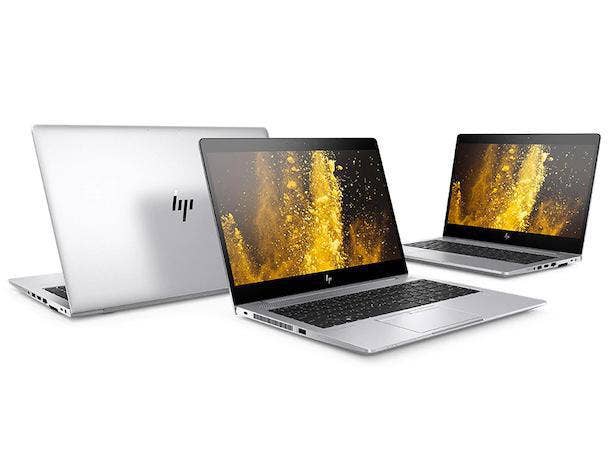HP Touts 'Incredibly Strong Foundation' In Latest Quarterly Results
The company handily beat analyst expectations for its profits during its fiscal Q1, and is forecasting expanded profitability going forward.

HP Inc. did not suffer a slowdown in its latest quarter even amid the Intel CPU shortage, the coronavirus epidemic and a hostile takeover bid from rival Xerox.
In fact, HP handily beat analyst estimates for its profitability during its fiscal 2020 first quarter, ended Jan. 31, while generating revenue in line with the analyst consensus.
[Related: HP Chief Commercial Officer On Keeping The Focus On Customers And Partners]
"Our Q1 performance gives us great confidence in our plans for 2020 and beyond," HP CEO Enrique Lores said Monday during the company's quarterly call with analysts.
And perhaps even more notably, HP executives said the company expects expanded profitability in coming years--including in its historically lower-margin personal systems business and its print business, which has faced challenges such as in printer supplies.
On Monday, HP also announced a plan to return $16 billion in capital to shareholders between its fiscal 2020 and fiscal 2022. The plan will include an $8 billion share buyback that is targeted for the 12 months following HP's 2020 annual meeting, which has not yet been scheduled.
HP's stock price climbed 4.5 percent in after-hours trading Monday, to $23.10 a share.
For its fiscal 2020 outlook, HP on Monday raised its non-GAAP diluted net earnings expectation to between $2.33 and $2.43 per share, up from the previous outlook of $2.24 to $2.32 per share.
By HP’s fiscal 2022, the company expects to achieve non-GAAP earnings of between $3.25 and $3.65 per share. That's more than $1 per share higher than the current analyst consensus estimate, HP CFO Steve Fieler said during a call with reporters and analysts on Monday.
Helping to fuel the expanded profitability are cost reductions from the company's ongoing restructuring program, HP executives said Monday. The company has said it will reduce its total headcount by up to 16 percent—or approximately 7,000 to 9,000 job cuts—between now and the end of its fiscal year 2022. HP disclosed that 800 workers exited the company during its fiscal first quarter.
For the quarter, the company reported earnings of 65 cents per share, beating the analyst consensus estimate of 54 cents per share. HP's quarterly net revenue of $14.62 billion was in line with the consensus estimate.
The results "show a company with an incredibly strong foundation," Lores said during the quarterly call with analysts.
HP's commercial personal systems business was a top performer during the quarter, with the company reporting a 7-percent net revenue increase in the business--even as Intel’s CPU shortage has dragged on. Desktop revenue rose 2 percent while notebook revenue was up 1 percent for the first quarter.
The personal systems results were constrained by a 7-percent drop in consumer revenue for the category. Overall personal systems revenue reached $9.89 billion for HP’s fiscal Q1, up 1 percent from the same period a year earlier.
In print, HP reported that its highly profitable supplies business again sank, with revenue falling 7 percent year-over-year--marking the fifth consecutive down quarter for the print supplies business. The company has reported increased competition from third-party supplies vendors, which has been partly to blame for the downturn.
Meanwhile, commercial print hardware revenue was 1-percent lower compared to the year before. Overall, HP's printing revenue slipped 7 percent to $4.72 billion during its fiscal first quarter.
In terms of the financial impact from the coronavirus, HP is expecting to see "a negative impact to our top line, bottom line and free cash flow” during its second quarter, Fieler said. The company has factored in an 8-cent impact to its earnings per share guidance for Q2, he said.
However, "we view the impact as temporary, with limited impact to our second half” from the coronavirus outbreak, Fieler said.
Regarding the Xerox takeover bid, Lores offered comments during the call with analysts Monday, saying that the Xerox proposal “meaningfully undervalues HP” and “creates significant risk.”
Additionally, “it compromises the future of HP and the value of HP's shares,” Lores said. “Their proposal has a number of fundamental problems.”
He pointed to issues such as “a highly leveraged and irresponsible capital structure”--from Xerox needing to take on a significant amount of debt to acquire the much larger HP--as well as what he called a “flawed value exchange.”
“The Xerox proposal does not reflect the value of our company, or the plan that we announced today. The value exchange simply does not work,” Lores said.